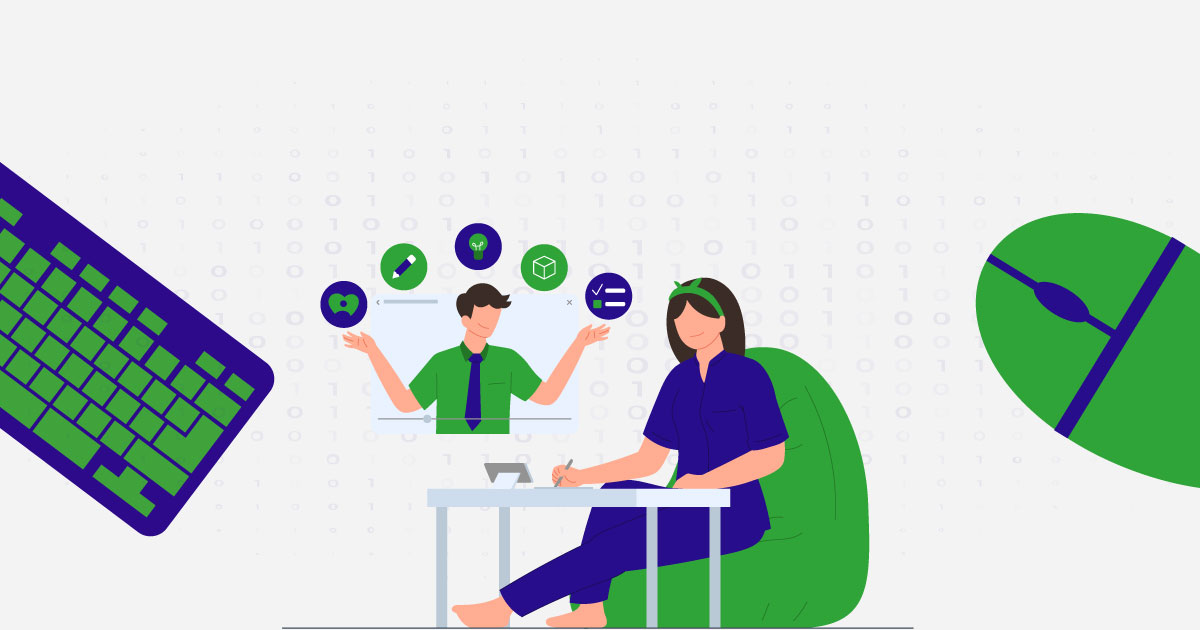Sometimes it might feel overwhelming. Our entertainment, relationships, work, our every move almost, has taken a digital shape. It is almost as if a person cannot exist unless they have created a digital alter ego. Certainly though, it cannot be that bad. And it’s not.
Because yes, sometimes it might feel too much, the fact that everything is 1s and 0s nowadays, but truth be told, among the vast number of our digitized life moments, there are lots of services that are here to make everyone’s lives a bit easier. That is, e-government services and the advantages that they bring along.
The Cause
What happens however, when a number of people are not familiar with using these services, thus not being able to experience the pros they offer in everyday life? Such was the reflection of certain people, who decided to put some hard work and effectively develop a complete framework to educate and train adult users, and at the same time tackle the effects of the 2nd and 3rd level of digital divide in their lives. The result of the get-together and the process that followed, was the birth of a much needed project. Its name is DigEqual.
Coming Together
As it is known, the most beautiful things in life are created when people combine their perspectives and come together. And that is exactly what happened with DigEqual! After the project was mentally conceived, the time had arrived for the team to work together and develop a concrete framework, on which the project will bloom.
So, on the morning of the 14th of April, 2022, we digitally met to discuss all about e-government services in Europe, the skills and competences required for a user to fully take advantage of what is being offered through these services, and of course the digital divide and its effects. With this term, we describe the gap between people that use e-government services, and people who do not.
There are 3 levels of digital divide, with the 1st one referring to the access to electronic devices, such as smartphones, tablets, and computers, the 2nd to the skills and competences required in order to use such services, as well as the trust inspired to users, and of course, the 3rd level of digital divide. Here, we are not examining access to devices, or the skills required to use them, rather than the everyday benefits that people who use digital services enjoy, compared to those who do not.
A few hours in, and we were finally able to say that the roadmap was ready. The initial objectives had been set, along with their deadlines, and the agreement on the what-who-when, allowed us to get down to work, looking forward to the first tangible results.
Project’s Results
And speaking about results, there are 3 to be produced throughout DigEqual. From training programs focused on educators, to interactive web-apps designed for users, as a way for them to become familiar and build confidence with e-government services.
- Digital Training Program for adult educators
Development of the conceptual background and a methodology for adult educational centres and their educators, to support their work with low-skilled and low qualified adults. A framework developed to offer guidance to adult educators, on how to tackle the effects of the 2nd and 3rd levels of digital divide.
- Digital Educational courses
- A preparatory course on a context-based approach and e-government for adult educators, which aims at introducing them to a proficient use of online services and training procedures.
- A context-based course on e-government and digital skills targeting at low-skiled and low-qualified adults, which focuses on different contexts of e-government on adults lives.
- e-government services simulation interactive web-app.
A quest-based web app for adults, through which they will be able to reflect on how life with and without e-government services is, through everyday scenarios and contexts that are familiar to them. Users will be able to embrace the positives of e-government services usage and build confidence on its aspects.
The Partnership
Amazing people are working on the project and its activities. The participant organizations form the following list:
- Polygonal – Italy
- Eurosuccess – Cyprus
- DomSpain – Spain
- p-consulting.gr – Greece
- Wisamar – Germany
- University of Aveiro – Portugal
Target Groups
A rather interesting project, that has a wide audience. The directly involved target groups are:
Primary
- adult educators with little knowledge on e-government services.
- adults who are involved in our activities or who suffer from digital exclusion.
- adults with difficult social-economic background (loneliness, women, low wage).
- partner organizations’ educational staff working on adult training/inclusion.
Secondary
- educational centers and other organizations working in the field of adult support & adult involvement.
- associated partners’ target groups & staff.
Relevant Stakeholders
- policy makers in the field of long-life learning and permanent learning (e.g., social welfare departments of municipalities, regional bodies working in social inclusion).
- other second-level organizations representing adults (unions, representative bodies of social clubs etc.).
Sometimes, change takes years and years, and endless resources to become reality. But some others, all it takes is people with will and vision, building on basic values.
Join DigEqual, more’s coming soon!


